Hair Loss Got You Down? Try These 5 Natural Techniques to Promote Hair Growth
Hair Loss Got You Down? Try These 5 Natural Techniques to Promote Hair Growth
Are you tired of battling hair loss and feeling self-conscious about thinning locks? Well, we’ve got some fantastic news for you. Say goodbye to expensive treatments and hello to a more natural approach! In today’s blog post, we’re diving headfirst into the world of hair growth with five incredible techniques that will leave you flabbergasted. Grab a seat, take notes, and get ready for a journey toward lush and healthy hair like never before. It’s time to turn heads with your luscious mane – no more letting hair loss bring you down!
Introduction to Hair Loss
1. Introduction to Hair Loss
Hair loss, also known as alopecia, is a common condition that affects millions of people worldwide. While it is often associated with aging and men, hair loss can affect anyone of any age and gender. It can be caused by various factors such as genetics, hormonal changes, medical conditions, stress, and poor nutrition.
Losing some hair every day is normal as part of the natural hair growth cycle. However, when this process is disrupted or accelerated, it can result in significant hair thinning or baldness. This can not only have physical effects but also psychological ones such as low self-esteem and confidence.
There are several types of hair loss, each with its unique causes and symptoms. Androgenetic alopecia (AGA), also known as male-pattern or female-pattern baldness, is the most common form of hair loss in both men and women. It is characterized by a gradual thinning of the scalp hair over time due to genetic predisposition.
Other forms include alopecia areata which results in patchy hair loss on the scalp; telogen effluvium where there is excessive shedding of resting hairs; traction alopecia from tight hairstyles; and medical conditions like thyroid disorders or iron deficiency anemia that can cause temporary or permanent hair loss.
While seeking professional help from a dermatologist or trichologist may be necessary if you are experiencing severe or sudden hair loss, there are also natural techniques that you can try at home to promote healthy hair growth.
By understanding the cause of your specific type of hair loss through consultation with a healthcare practitioner or through research online, you will be able to identify the best course of action for your situation.
In this blog post, we will discuss some natural techniques that may help promote healthier hair growth regardless of whether your type of alopecia requires medical intervention or not. These methods focus on improving overall health and nourishing the scalp and hair with essential nutrients, which are crucial for strong and healthy hair growth.
In the following sections, we will delve deeper into these techniques and how they can help combat hair loss. Remember that every person’s experience with alopecia is different, so what works for someone else may not work for you. Be patient and consistent in your efforts, and give your body time to adapt to any changes you make.
Causes of Hair Loss
There are many possible causes of hair loss, and understanding the root cause is crucial in finding an effective solution. Here are some of the most common reasons why people experience hair loss.
1. Genetics
One of the most significant contributors to hair loss is genetics. If you have a family history of baldness or thinning hair, it is more likely that you will also experience these issues. A particular type of hair loss called androgenetic alopecia, also known as male or female pattern baldness, is inherited from either parent and can start showing signs as early as your 20s.
2. Hormonal Changes
Hormonal changes can also play a role in hair loss. This could be due to conditions such as PCOS (polycystic ovary syndrome) or menopause for women, and hormonal imbalances for men. These fluctuations can lead to increased hair shedding and potentially permanent damage to the follicles if left untreated.
3. Nutritional Deficiencies
Hair growth requires a constant supply of essential nutrients such as protein, biotin, iron, and vitamins A, C, and D. When our diets lack these nutrients or when they are not adequately absorbed by our bodies, it can result in weakened hair follicles leading to excessive shedding.
4. Medical Conditions
Certain medical conditions like thyroid disorders, autoimmune diseases (e.g., alopecia areata), scalp infections (e.g., ringworm), and chronic stress can all contribute to temporary or permanent hair loss.
5. Poor Hair Care Habits
Believe it or not, how you treat your hair daily can also impact its health and growth potential. Overuse of heat styling tools like blow dryers and straighteners can damage the strands causing them to weaken over time. Tight hairstyles like ponytails or braids done too often can also put strain on the roots leading to breakage and eventual thinning.
6. Age
As we age, our bodies naturally produce less of certain hormones and proteins that contribute to healthy hair growth. This can result in a gradual thinning of hair, primarily along the hairline and crown area for both men and women.
Now that we have covered some of the potential causes behind hair loss, it is essential to note that identifying the root cause may require a professional diagnosis from a dermatologist or doctor. Once you have determined why you are experiencing hair loss, you can then explore natural techniques to promote hair growth and potentially reverse any damage caused by these factors.
Importance of Natural Remedies for Hair Growth
1. Importance of Natural Remedies for Hair Growth
Hair loss is a common problem that affects people all over the world, regardless of age, gender, or ethnicity. It can be caused by various factors such as genetics, hormonal changes, stress, diet, and certain medical conditions. While there are many hair growth products available in the market that promise quick results, they often contain harsh chemicals and may have adverse effects on our health.
This is where natural remedies for hair growth come into play. These remedies not only promote hair growth but also nourish and strengthen the hair follicles without any harmful side effects. Let’s explore some of the reasons why natural remedies should be your go-to solution for promoting healthy hair growth.
1.1 Safer Option
One of the main advantages of using natural remedies for hair growth is that they are safer and gentler on our bodies compared to chemical-based products. Most commercial hair growth products contain ingredients like sulfates, parabens, and synthetic fragrances which can cause scalp irritation and even damage to our overall health in the long run.
On the other hand, natural remedies use plant-based ingredients that are free from harmful chemicals and toxins. They work in harmony with our body’s natural processes to stimulate hair growth while maintaining a healthy scalp.
1.2 Cost-Effective
Natural remedies for promoting hair growth are often more cost-effective than commercial products. Many items used in these remedies can be found right in your kitchen pantry or at a local grocery store at an affordable price.
Ingredients like coconut oil, castor oil, eggs, honey, aloe vera gel, and onion juice are just some examples of readily available items that can help boost hair growth when used consistently.
1.3 Long-Term Benefits
While chemical-based products may provide quick results initially, they often come with long-term consequences such as dryness and breakage of the hair strands due to their harsh ingredients. On the other hand, natural remedies may take a little longer to show results, but they provide long-term benefits for our hair and scalp health.
They nourish the hair from within, promoting strong and healthy growth that is free from damage. Moreover, continuous use of natural remedies can also prevent future hair loss and maintain the overall health of our scalp.
Incorporating natural remedies into your hair care routine not only promotes healthy hair growth but also ensures that you are not exposing yourself to any harmful chemicals. They offer a safer, cost-effective, and sustainable way to achieve luscious locks while maintaining the overall health of our scalp. So why wait? Start trying out these natural techniques for better hair today!
5 Natural Techniques to Promote Hair Growth:
Various natural techniques can help promote hair growth and prevent hair loss. These methods not only nourish the scalp but also encourage healthy hair growth without harsh chemicals or expensive treatments. Here are some effective natural techniques to promote hair growth:
1. Massage Your Scalp: Massaging your scalp regularly can improve blood circulation and stimulate hair follicles, promoting healthier and faster hair growth. You can use essential oils such as rosemary, lavender, or peppermint for even better results. Simply massage a few drops of oil onto your scalp with your fingertips in gentle circular motions for 5-10 minutes before shampooing.
2. Balanced Diet: Eating a balanced diet rich in protein, iron, vitamins B and C, and biotin is crucial for maintaining healthy hair. Protein helps strengthen the hair shaft while vitamin B promotes cell growth, both essential for promoting healthy hair growth.
3. Use Natural Hair Oils: Natural oils like coconut oil, almond oil, castor oil, and olive oil have been used for centuries to promote stronger and healthier hair. These oils contain important fatty acids that nourish the scalp and help repair damaged hair follicles.
4. Use Aloe Vera: Aloe vera contains enzymes that can help repair dead skin cells on the scalp which can clog follicles causing slow or stunted hair growth. Apply fresh aloe vera gel on your scalp once a week as a mask or include it in your shampoo routine to help unclog pores and promote healthier hair growth.
5. Don’t Overdo Heat Styling: Excessive heat from blow dryers or hot tools can damage the cuticle layers of your strands making them brittle and prone to breakage leading to slow or stalled hair growth over time.
6. Use Herbal Supplements: Herbs such as saw palmetto extract contain compounds that block DHT (dihydrotestosterone) from attacking genetically predisposed follicle receptors preventing their destruction and promoting hair growth.
7. Cut Down On Stress: Stress can cause a hormone imbalance that negatively impacts our body’s ability to produce healthy hair. Take time every day for some self-care practices like yoga, meditation, or deep breathing exercises to minimize stress levels which in return helps promote healthier hair growth.
Incorporating these natural techniques into your hair care routine not only encourages faster and healthier hair growth but also promotes overall scalp health. Remember to be patient as it might take a few months before you see visible results, but with consistency and perseverance, you will achieve the luscious locks you desire.
– Proper Nutrition and Diet
Proper nutrition and diet are crucial factors when it comes to promoting hair growth. Your body needs certain nutrients for your hair to grow healthy and strong. Without these essential nutrients, you may experience hair loss or thinning.
The first nutrient that is important for hair growth is protein. Hair is made up of a protein called keratin, so getting enough protein in your diet will help support the growth of new hair follicles. Some great sources of protein include lean meats, eggs, fish, beans, and lentils. If you follow a plant-based diet, make sure to incorporate enough plant-based proteins such as tofu, quinoa, and nuts into your meals.
In addition to protein, vitamins also play a crucial role in promoting hair growth. Vitamin A helps produce sebum which moisturizes the scalp and keeps the hair healthy. You can find vitamin A in foods like sweet potatoes, carrots, spinach, and broccoli. Vitamin C is another key vitamin that supports collagen production which strengthens the hair shafts. Citrus fruits such as oranges or strawberries are excellent sources of vitamin C.
Biotin (also known as vitamin B7) has been shown to promote hair growth by strengthening the keratin infrastructure within the body. Foods rich in biotin include eggs (specifically egg yolks), nuts like almonds and peanuts, whole grains like oats and brown rice, as well as avocadoes.
Omega-3 fatty acids are not only beneficial for heart health but they also aid in keeping the scalp hydrated which promotes healthy hair growth. Good sources of omega-3 fatty acids include salmon, sardines, chia seeds, flaxseeds, and walnuts.
Iron deficiency can lead to anemia which can cause thinning of the hair or even temporary loss if left untreated. To ensure you’re meeting your daily iron intake requirements,take from foods such as dark leafy greens like spinach, kale, lentils, and soybeans.
Last but not least is water. Staying hydrated helps your body function at its best and that includes promoting hair growth. Aim to drink at least 8 glasses of water a day or more if you’re active or in hot weather conditions.
Incorporating these essential nutrients into your diet will support healthy hair growth from within. Make sure to include a variety of foods from all food groups in your meals to ensure you’re getting all the necessary vitamins and minerals for optimal hair health. By following a well-balanced diet, you can nourish your hair from the inside out and potentially see improvements in its thickness, strength, and shine.
– Scalp Massage and Aromatherapy
1. Scalp Massage and Aromatherapy
Scalp massage and aromatherapy are two natural techniques that can benefit hair growth by promoting relaxation and improving circulation to the scalp. These methods have been used for centuries in traditional medicine, and their effectiveness has been supported by modern research.
Scalp massage involves gently rubbing or kneading the scalp with the fingertips or a soft brush. This simple technique not only feels relaxing but also stimulates blood flow to the hair follicles, providing them with essential nutrients and oxygen necessary for healthy hair growth. Furthermore, scalp massage can also help reduce stress levels, which can contribute to hair loss.
Aromatherapy, on the other hand, is the practice of using essential oils from plants for therapeutic purposes. Essential oils such as rosemary, peppermint, lavender, and cedarwood have been found to have properties that promote hair growth when applied topically to the scalp. These oils work by stimulating circulation, improving cellular metabolism in the scalp, reducing inflammation, and balancing hormones – all of which are vital for healthy hair growth.
To perform a scalp massage at home:
1) Start by warming up a few drops of your preferred essential oil (or a blend of oils) between your palms.
2) Gently rub your fingertips on your scalp in circular motions.
3) Slowly increase pressure as you move across different areas of your head.
4) Spend extra time massaging areas where you feel tension or tightness.
5) Continue this motion for approximately 10 minutes before washing it off.
6) You can do this several times per week depending on personal preference and time availability.
As an alternative method of application for essential oils:
1) Dilute a few drops (approximately 5-7 drops depending on personal preference and level of irritation after initial applications).
2) Use an applicator bottle (preferably glass), then apply directly along sections in parts until you cover your entire scalp.
3) Gently massage the oil into your scalp.
4) Wash off using a gentle shampoo, preferably sulfate-free to maintain healthy hair.
Regular scalp massages and aromatherapy treatments can be beneficial for promoting hair growth. They are simple and inexpensive techniques that can easily be incorporated into your hair care routine. However, always speak with a healthcare professional before starting any new practices or if you have any underlying health conditions. These natural techniques may not work for everyone, but they are worth trying as part of a holistic approach to maintaining healthy hair.
– Essential Oils and Supplements
1. Essential Oils for Hair Growth
Essential oils have been used for centuries for their therapeutic and medicinal properties. When it comes to promoting hair growth, certain essential oils have shown great promise in improving the overall health of the scalp and stimulating hair follicles.
a) Rosemary Oil: This essential oil is known for its stimulating effects on blood circulation, which can help deliver nutrients and oxygen to the hair follicles, promoting healthy hair growth. It also has anti-inflammatory properties that can soothe an irritated scalp and prevent dandruff, a common cause of hair loss.
b) Peppermint Oil: Similar to rosemary oil, peppermint oil is known for its cooling and soothing effect on the scalp. Its menthol content can increase blood flow to the scalp, nourishing the hair follicles and promoting new hair growth.
c) Lavender Oil: Apart from its calming aroma, lavender oil has been found to improve blood circulation to the scalp which can aid in hair growth. Its antimicrobial properties also make it effective in fighting against fungal infections that may contribute to thinning or shedding of hair.
d) Cedarwood Oil: This woody-scented essential oil has powerful antiseptic and anti-inflammatory properties that can promote a healthy scalp environment by balancing natural oils and preventing conditions like dandruff or itchiness.
To use these essential oils for promoting hair growth, mix 2-3 drops of your preferred oil with a carrier oil such as coconut or jojoba oil and massage into your scalp before bed. Leave it on overnight for best results.
2. Supplements for Healthy Hair Growth
While essential oils are great at nourishing the scalp externally, supplements play an important role internally in maintaining overall health of our body’s largest organ – our skin (including our scalps).
a) Biotin: Also known as vitamin B7, biotin is known as one of the most crucial vitamins for promoting hair growth. It plays a vital role in the production of keratin, the main protein that makes up our hair.
b) Iron: Iron is important for carrying oxygen to our cells, including the hair follicles. Iron deficiency can lead to anemia and poor circulation, both of which can contribute to hair loss.
c) Vitamin D: Studies have shown that vitamin D receptors are present in hair follicles, suggesting a potential link between vitamin D deficiency and hair loss. Adequate levels of vitamin D can help improve overall scalp health and promote hair growth.
d) Omega-3 Fatty Acids: These essential fatty acids are crucial for maintaining healthy cell membranes throughout the body, including the scalp. Consuming enough omega-3s can help promote healthy sebum production on the scalp while reducing inflammation and supporting overall hair growth.
Supplements should always be taken as directed by a healthcare professional and in conjunction with a balanced diet. It’s important to note that while supplements can support healthy hair growth, they cannot reverse genetic or hormonal causes of hair loss
– Stress Management and Relaxation Techniques
1. Stress Management and Relaxation Techniques for Promoting Hair Growth
Hair loss can often be a result of increased stress levels and the body’s response to it. When we experience stress, our bodies produce a hormone called cortisol, which can disrupt the natural hair growth cycle and lead to hair loss. Therefore, it is essential to manage stress and find ways to relax to promote healthy hair growth.
Here are some effective techniques that can help in managing stress and promoting relaxation for better hair health:
1.1 Deep Breathing Exercises: Deep breathing exercises have been shown to reduce stress and promote relaxation. It involves taking deep breaths from your diaphragm instead of your chest, which helps in providing more oxygen to the body and calming the nervous system.
To practice deep breathing, sit comfortably with your eyes closed and inhale deeply through your nose for 6-8 seconds, hold your breath for 4-5 seconds, then slowly exhale through your mouth for 8-10 seconds. Repeat this process five times or until you feel relaxed.
1.2 Meditation: Another effective technique for managing stress is meditation. It involves sitting quietly and focusing on your breath or a mantra while letting go of any thoughts or worries. Regular meditation has been found to decrease cortisol levels in the body and provide mental clarity.
You can start with just 5-10 minutes of daily meditation and gradually increase the duration as you become more comfortable with the practice.
1.3 Exercise: Engaging in physical activities such as yoga, jogging, or dancing can also help reduce stress levels by releasing endorphins – chemicals that promote feelings of happiness and well-being in the body. Exercise also improves blood circulation, ensuring proper nourishment of hair follicles for healthy hair growth.
1.4 Aromatherapy: The use of essential oils is beneficial in promoting relaxation and reducing stress levels. Lavender oil, in particular, has been shown to have calming effects on the body and mind. You can diffuse it in your room, add a few drops to your bathwater, or use it during a relaxing massage.
1.5 Adequate Sleep: Getting enough quality sleep is crucial for managing stress levels and promoting hair growth. Lack of sleep can lead to increased cortisol production and disrupt the natural hair growth cycle. Aim for 7-9 hours of sleep every night to ensure optimal hair health.
Incorporating these stress management and relaxation techniques into your daily routine can not only help promote hair growth but also improve your overall well-being. Remember to prioritize self-care and take breaks whenever needed to reduce stress levels and allow healthy hair growth.
– Herbal Remedies
Natural and herbal remedies have been used for centuries to promote hair growth and treat hair loss. These remedies are often gentler on the scalp and can provide a more sustainable solution compared to chemical treatments.
Various herbs have been shown to aid in hair growth and prevent further hair loss. Some of these herbs include rosemary, peppermint, lavender, horsetail, nettle, ginseng, and aloe vera. Let’s explore how these natural ingredients can help with promoting healthy hair growth.
Rosemary has long been known for its stimulating effects on the scalp. It increases blood circulation to the scalp which helps nourish the hair follicles and stimulate new growth. You can use rosemary oil or steep fresh rosemary leaves in hot water to make a rinse for your hair after shampooing.
Peppermint also has similar properties to rosemary as it contains menthol which increases blood flow to the scalp. It also has anti-inflammatory properties which can reduce scalp irritation that may lead to hair loss. Peppermint oil can be mixed with a carrier oil like coconut or olive oil and massaged onto the scalp.
Lavender is known for its calming scent but it also has beneficial properties when it comes to promoting hair growth. Its antiseptic properties help keep the scalp clean while increasing circulation and stimulating new cell production in the follicles. You can use lavender essential oil by mixing it with your shampoo or diluting it in a carrier oil before applying it directly onto your scalp.
Horsetail is rich in minerals such as silica which is crucial for maintaining healthy skin and strong hair. Silica helps strengthen both the hair shafts and roots, preventing breakage and encouraging new growth. You can take horsetail supplements or drink horsetail tea regularly for best results.
Nettle is another herb that contains high levels of silica along with other vitamins such as iron, magnesium, and calcium. These minerals help improve circulation to the scalp and add strength and shine to the hair. Nettle can be consumed as a tea or taken as a supplement.
Ginseng is known for its rejuvenating properties and has been used in traditional medicine for centuries. It helps stimulate blood flow to the scalp, promoting healthy hair growth. You can take ginseng supplements or use ginseng-infused hair products for added benefits.
Aloe vera has been used for various health and beauty purposes, including promoting hair growth. It contains enzymes that help remove dead skin cells from the scalp, allowing for better absorption of nutrients and improved hair growth. Aloe vera gel can be applied directly onto the scalp or mixed with other ingredients such as coconut oil for a nourishing hair mask.
Incorporating these herbal remedies into your hair care routine may help promote healthier and stronger hair growth. However, it is important to note that everyone’s body and hair are different, so results may vary. It is always best to consult with a healthcare professional before trying any new remedies, especially if you
Other Tips for Maintaining Healthy Hair
1. Other Tips for Maintaining Healthy Hair
In addition to incorporating natural techniques for promoting hair growth, there are a few other things you can do to keep your hair healthy and prevent further hair loss.
a) Avoid harsh chemicals in hair products: Many commercial hair products contain harsh chemicals such as sulfates, parabens, and silicones that can strip the hair of its natural oils and cause damage. Opt for sulfate-free shampoos and conditioners, or even better, switch to all-natural or organic alternatives. Look for ingredients like aloe vera, coconut oil, and rosemary extract which are known to nourish the scalp and promote healthy hair growth.
b) Use a wide-tooth comb instead of a brush: Brushing your hair too vigorously can cause breakage and lead to thinning hair. Instead of using a brush, opt for a wide-tooth comb when detangling wet or dry hair. This will help minimize damage while still effectively removing tangles.
c) Be gentle with wet hair: Wet strands are more fragile than dry ones, so be extra careful when handling wet hair. Avoid rubbing your towel vigorously on your head – instead, gently pat dry or wrap it in an old t-shirt to absorb excess water. Also, avoid using heat styling tools on damp hair as it can cause damage.
d) Protect your scalp from the sun: Just like our skin needs protection from harmful UV rays, our scalps do too. Sun exposure can damage the sensitive skin on our heads leading to irritation and inflammation which may impede healthy hair growth. If you’re spending time outdoors during peak sun hours (10 am – 2 pm), wear a hat or use sunscreen specifically designed for the scalp.
e) Avoid tight hairstyles: Tight ponytails, braids or buns may look stylish but they also put stress on your roots causing traction alopecia – a form of gradual hair loss. If you’re noticing thinning around your hairline or where you typically pull your hair back, opt for looser hairstyles that don’t put excessive strain on your scalp.
By incorporating these tips into your hair care routine along with the natural techniques mentioned in this article, you’ll be well on your way to promoting healthy hair growth and preventing further hair loss. Remember, taking care of your overall health and reducing stress are also key factors in maintaining a healthy head of hair. So make sure to prioritize self-care and try to minimize stress levels for optimal results.
Conclusion: Embracing a Holistic Approach to Hair Care
1. Conclusion: Embracing a Holistic Approach to Hair Care
Maintaining healthy and luscious hair is not just about using the right products or following a strict hair care routine – it’s also about adopting a holistic approach towards your overall well-being. Our hair health is closely linked to our lifestyle choices, diet, and stress levels, so to promote hair growth effectively, we need to address these factors as well.
From incorporating nutritious foods into our diet to reducing stress levels through relaxation techniques, there are many natural ways to improve hair growth and reduce hair loss. By embracing a holistic approach to hair care, we can achieve stronger and healthier locks that will make us feel confident and radiant.
One of the key elements of a holistic approach is paying attention to our diet. Our bodies need essential vitamins and minerals for healthy hair growth, such as biotin, iron, zinc, and vitamin D. Incorporating foods like eggs, leafy greens, nuts and seeds, fish, and lean meats into our meals can provide us with these important nutrients necessary for strong and vibrant hair.
In addition to nutrition, managing stress levels is crucial for maintaining healthy tresses. High levels of stress can disrupt the normal functioning of our body’s systems – including our scalp’s ability to produce new hairs – leading to increased shedding or slower hair growth. Therefore, finding ways to relax and destress such as practicing yoga or meditation can help promote better overall health along with healthier hair.
Another important aspect of a holistic approach is avoiding harmful chemicals found in many commercial products that could damage or weaken our strands over time. Instead of relying on these harsh products filled with artificial fragrances and sulfates try using natural solutions like essential oils or homemade remedies made from simple ingredients like coconut oil.
Finally yet importantly it’s essential for us not only to focus on external factors but also on what we put inside our body which significantly affects both skin as well as hair health in the long run. Reducing alcohol consumption and avoiding smoking can prevent premature hair loss and promote a healthy scalp.
Embracing a holistic approach to hair care involves incorporating wholesome practices into our daily routine that not only benefit our hair but also improve our overall well-being. By nourishing ourselves from the inside out, we can achieve strong, shiny, and luscious locks that will make us feel confident and beautiful. So next time you’re struggling with hair loss or lack of growth, remember to take a step back and consider how your lifestyle choices may be impacting your tresses.
Don’t forget to give us a follow on Facebook!

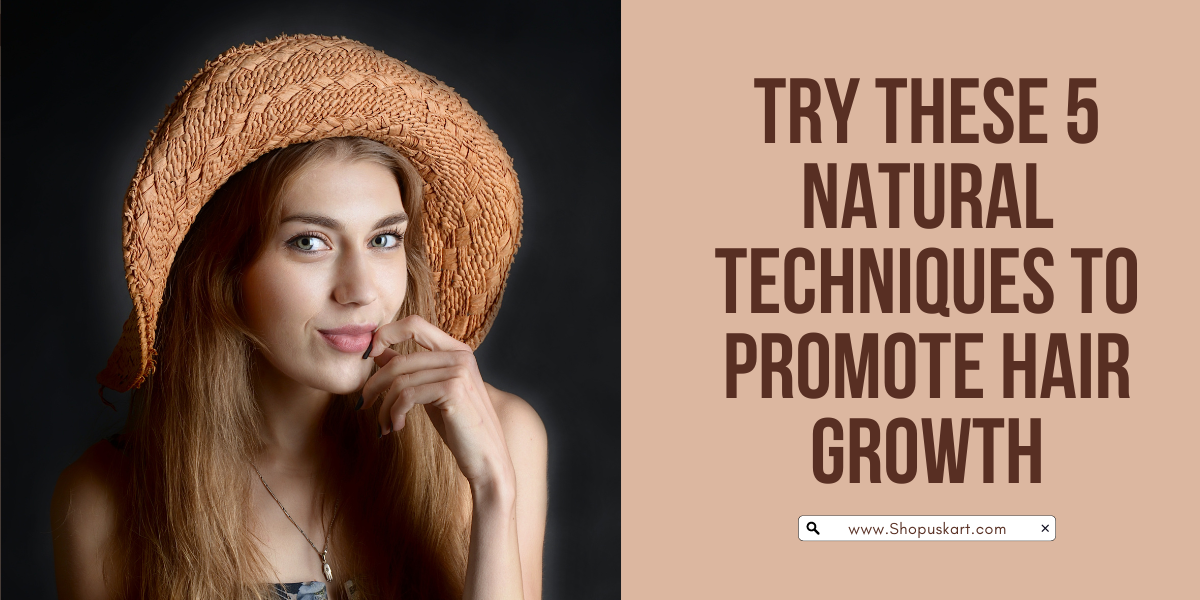
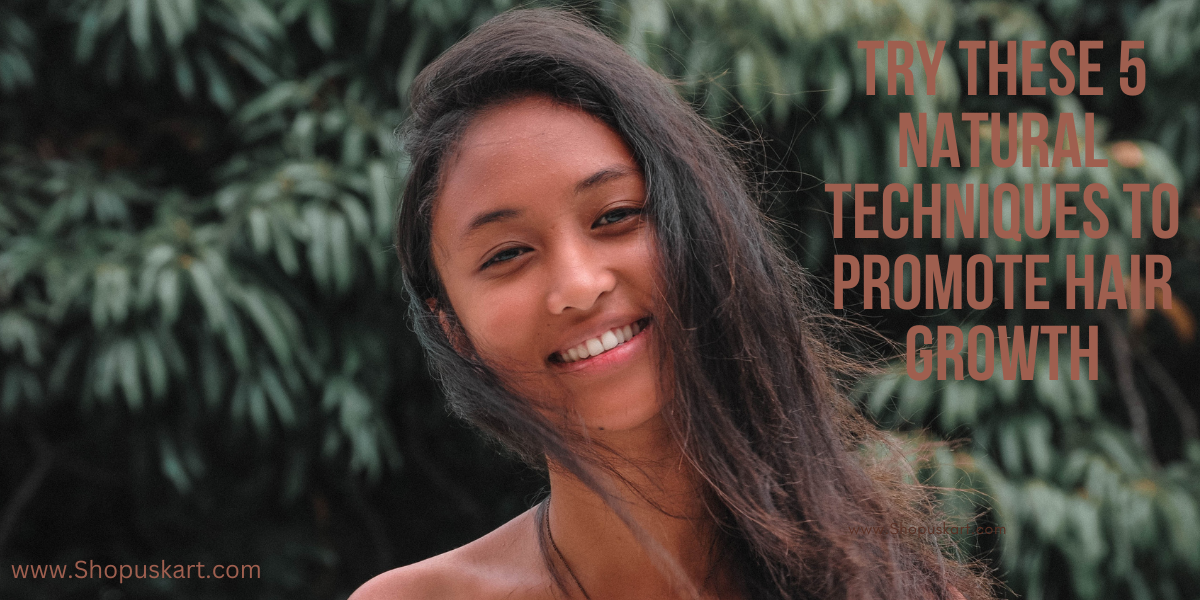

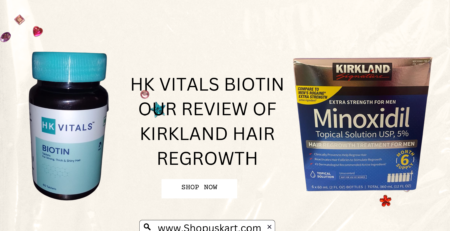
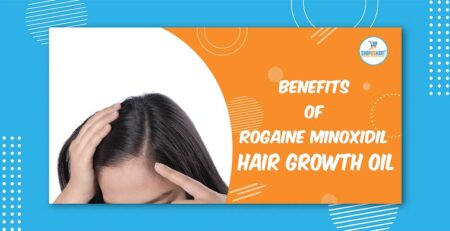
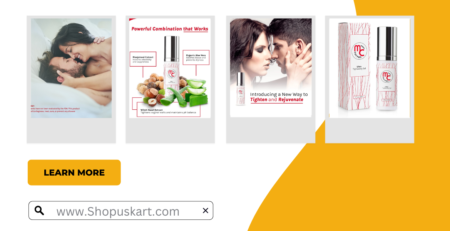
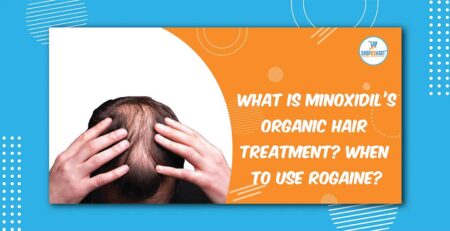

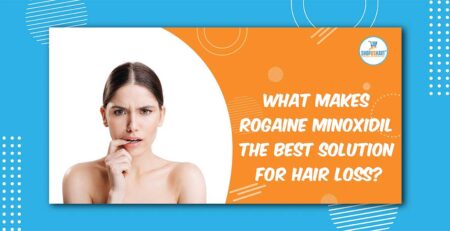
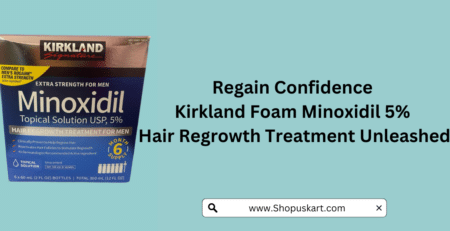
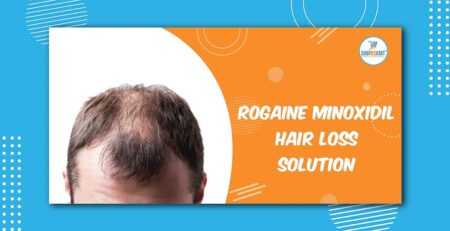
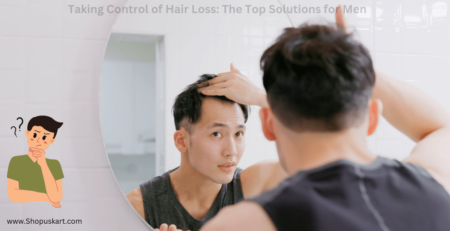
Leave a Reply